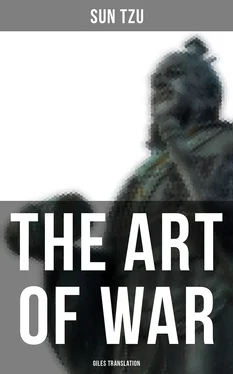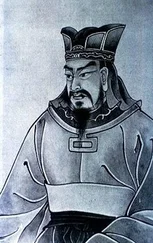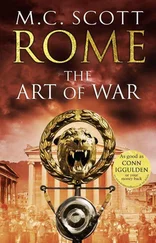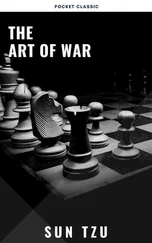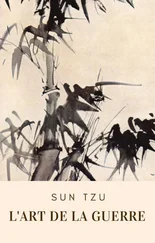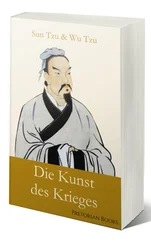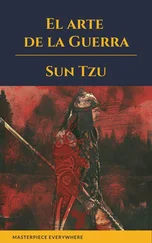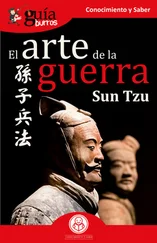41. He who exercises no forethought but makes light of his opponents is sure to be captured by them.
42. If soldiers are punished before they have grown attached to you, they will not prove submissive; and, unless submissive, then will be practically useless. If, when the soldiers have become attached to you, punishments are not enforced, they will still be useless.
43. Therefore soldiers must be treated in the first instance with humanity, but kept under control by means of iron discipline. This is a certain road to victory.
44. If in training soldiers commands are habitually enforced, the army will be well-disciplined; if not, its discipline will be bad.
45. If a general shows confidence in his men but always insists on his orders being obeyed, the gain will be mutual.
TOC
1. Sun Tzu said: We may distinguish six kinds of terrain, to wit: (1) Accessible ground; (2) entangling ground; (3) temporizing ground; (4) narrow passes; (5) precipitous heights; (6) positions at a great distance from the enemy.
2. Ground which can be freely traversed by both sides is called accessible.
3. With regard to ground of this nature, be before the enemy in occupying the raised and sunny spots, and carefully guard your line of supplies. Then you will be able to fight with advantage.
4. Ground which can be abandoned but is hard to re-occupy is called entangling.
5. From a position of this sort, if the enemy is unprepared, you may sally forth and defeat him. But if the enemy is prepared for your coming, and you fail to defeat him, then, return being impossible, disaster will ensue.
6. When the position is such that neither side will gain by making the first move, it is called temporizing ground.
7. In a position of this sort, even though the enemy should offer us an attractive bait, it will be advisable not to stir forth, but rather to retreat, thus enticing the enemy in his turn; then, when part of his army has come out, we may deliver our attack with advantage.
8. With regard to narrow passes, if you can occupy them first, let them be strongly garrisoned and await the advent of the enemy.
9. Should the army forestall you in occupying a pass, do not go after him if the pass is fully garrisoned, but only if it is weakly garrisoned.
10. With regard to precipitous heights, if you are beforehand with your adversary, you should occupy the raised and sunny spots, and there wait for him to come up.
11. If the enemy has occupied them before you, do not follow him, but retreat and try to entice him away.
12. If you are situated at a great distance from the enemy, and the strength of the two armies is equal, it is not easy to provoke a battle, and fighting will be to your disadvantage.
13. These six are the principles connected with Earth. The general who has attained a responsible post must be careful to study them.
14. Now an army is exposed to six several calamities, not arising from natural causes, but from faults for which the general is responsible. These are: (1) Flight; (2) insubordination; (3) collapse; (4) ruin; (5) disorganization; (6) rout.
15. Other conditions being equal, if one force is hurled against another ten times its size, the result will be the flight of the former.
16. When the common soldiers are too strong and their officers too weak, the result is insubordination. When the officers are too strong and the common soldiers too weak, the result is collapse.
17. When the higher officers are angry and insubordinate, and on meeting the enemy give battle on their own account from a feeling of resentment, before the commander-in-chief can tell whether or not he is in a position to fight, the result is ruin.
18. When the general is weak and without authority; when his orders are not clear and distinct; when there are no fixes duties assigned to officers and men, and the ranks are formed in a slovenly haphazard manner, the result is utter disorganization.
19. When a general, unable to estimate the enemy's strength, allows an inferior force to engage a larger one, or hurls a weak detachment against a powerful one, and neglects to place picked soldiers in the front rank, the result must be rout.
20. These are six ways of courting defeat, which must be carefully noted by the general who has attained a responsible post.
21. The natural formation of the country is the soldier's best ally; but a power of estimating the adversary, of controlling the forces of victory, and of shrewdly calculating difficulties, dangers and distances, constitutes the test of a great general.
22. He who knows these things, and in fighting puts his knowledge into practice, will win his battles. He who knows them not, nor practices them, will surely be defeated.
23. If fighting is sure to result in victory, then you must fight, even though the ruler forbid it; if fighting will not result in victory, then you must not fight even at the ruler's bidding.
24. The general who advances without coveting fame and retreats without fearing disgrace, whose only thought is to protect his country and do good service for his sovereign, is the jewel of the kingdom.
25. Regard your soldiers as your children, and they will follow you into the deepest valleys; look upon them as your own beloved sons, and they will stand by you even unto death.
26. If, however, you are indulgent, but unable to make your authority felt; kind-hearted, but unable to enforce your commands; and incapable, moreover, of quelling disorder: then your soldiers must be likened to spoilt children; they are useless for any practical purpose.
27. If we know that our own men are in a condition to attack, but are unaware that the enemy is not open to attack, we have gone only halfway towards victory.
28. If we know that the enemy is open to attack, but are unaware that our own men are not in a condition to attack, we have gone only halfway towards victory.
29. If we know that the enemy is open to attack, and also know that our men are in a condition to attack, but are unaware that the nature of the ground makes fighting impracticable, we have still gone only halfway towards victory.
30. Hence the experienced soldier, once in motion, is never bewildered; once he has broken camp, he is never at a loss.
31. Hence the saying: If you know the enemy and know yourself, your victory will not stand in doubt; if you know Heaven and know Earth, you may make your victory complete.
TOC
1. Sun Tzu said: The art of war recognizes nine varieties of ground: (1) Dispersive ground; (2) facile ground; (3) contentious ground; (4) open ground; (5) ground of intersecting highways; (6) serious ground; (7) difficult ground; (8) hemmed-in ground; (9) desperate ground.
2. When a chieftain is fighting in his own territory, it is dispersive ground.
3. When he has penetrated into hostile territory, but to no great distance, it is facile ground.
4. Ground the possession of which imports great advantage to either side, is contentious ground.
5. Ground on which each side has liberty of movement is open ground.
6. Ground which forms the key to three contiguous states, so that he who occupies it first has most of the Empire at his command, is a ground of intersecting highways.
7. When an army has penetrated into the heart of a hostile country, leaving a number of fortified cities in its rear, it is serious ground.
8. Mountain forests, rugged steeps, marshes and fens--all country that is hard to traverse: this is difficult ground.
9. Ground which is reached through narrow gorges, and from which we can only retire by tortuous paths, so that a small number of the enemy would suffice to crush a large body of our men: this is hemmed in ground.
Читать дальше
